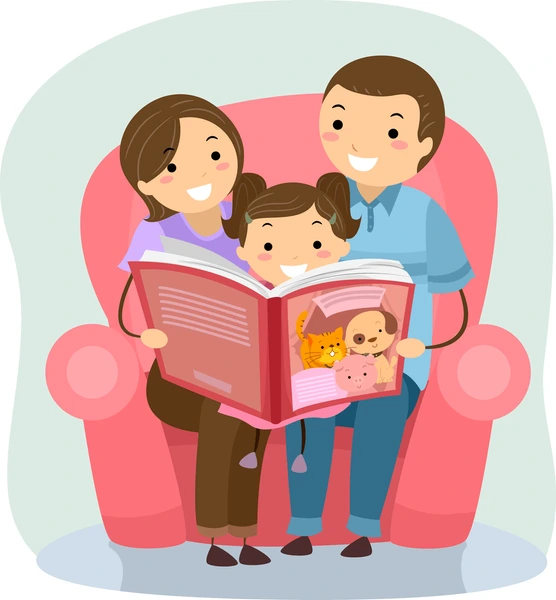
You’re a parent and you’ve worked a long day. Maybe in an office with deadline demands. Maybe in a healthcare facility with life and death decisions. Maybe in a classroom with thirty-plus students needing direction and support in every lesson you teach. You may have spent your day at home with a baby or toddler with food needs followed by cleaning needs, followed by safe playtime and constant love. Unlike the others, the parenting job is on a closed-circuit wire that repeats from the moment you wake until the moment you fall exhausted into bed for your own restorative sleep, and even then, all bets are off.
No matter how you spent your day, reading to your child before bed may not be at the top of your to-do list. It might even be the one thing you think you can skip, just this once, because you’re really tired, your child is really tired. Let’s just give each other a kiss goodnight, turn out the light, and be done for the day. What difference could one book a night make?
Turns out, it makes a big difference. I won’t give you sources to research or list the multitude of academic experts that prove me right, nor will I name studies done in the name of The Science of Reading. And there are studies; lots of them, but you can find them on your own if you need the proof. What I will tell you is what I’ve seen every year, without fail, no matter the grade that supports every study done.
In my twenty-plus years as an educator, my strongest readers are my highest achieving students in all areas of education. They come from various socioeconomic backgrounds, family lifestyles, and personal experiences, but the one thing they have in common is the fact that they were read to long before stepping foot in a structured classroom. The fact is, a parent who reads to their child as soon as said child can sit on their lap, is giving their child the gift of reading. Reading must be daily, or nightly, as your schedule allows, but it must happen before your child begins school and continue long after they can read independently.
What several of the studies previously mentioned, but not detailed, will also tell you is that a child who is below grade level in reading by the time they reach the 3rd grade has close to a 90% chance of never meeting their respective grade level of reading. Think that through. A child who struggles in reading will continue to struggle in reading with only the slightest chance of overcoming those struggles. Struggling readers struggle in all subjects and quickly lose confidence in themselves which leads to losing interest in school which leads to years lost that can only be made up with extensive intervention and hard work. Intervention can help, but is not a guarantee.
Because reading is the foundation for all learning, reading must come first and it must come early. Reading starts with concepts of print (knowing that a book is read from front to back, that sentences are read from left to right, top to bottom, and that pages turn from right to left), phonemic awareness (the sounds of the spoken language), and phonics (making the connection of each sound to the written letter). Because all future learning starts with reading, these lessons must not be deferred. Your child’s teacher, at any grade, should not be the first person to open a book and read to your child. You must be your child’s first teacher and you must be your child’s most consistent teacher. Your child’s future teachers can succeed with furthering what you’ve started. They most likely will not succeed without a foundation built by you.
Be your child’s first teacher. It takes extra effort at the end of a busy day to pull your child onto your lap and open a book. You may think your child is not learning. You may think your child isn’t following the story. Trust that your son or daughter is earning and that he or she is enjoying the time with you and a book. Your child will establish their favorite books which will become the most frequently requested reading of the night. You’ll read them so often you’ll know them by heart and can read them with your eyes closed. And yes, as a parent, I’ve done that too. Read to your child even when you’re tired or bored or just not in the mood for Dr. Seuss’s ABC book, for the hundredth time. You may find it boring to read the same book, but your child does not. The silly rhymes make them laugh and knowing what comes next in a favorite story brings them comfort. Engaging with you, their first teacher, inspires them.
Parents have multiple jobs. Some jobs pay better than others, but the one job you have that comes without a paycheck is the one that matters the most. Be your child’s first teacher and open the world to reading sooner rather than later. Even better, set the standard and model reading. Take your child to the library and check out books for your child and for yourself. Children learn what they live; let them live with books and reading.
-SARA